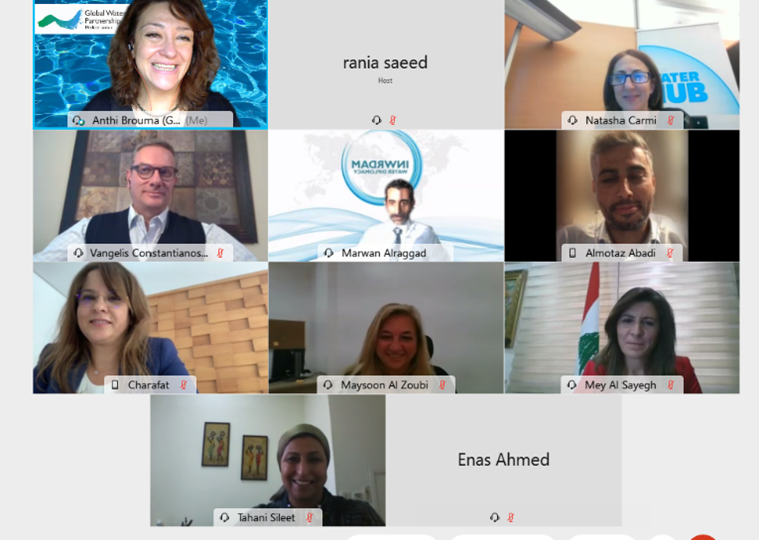Building on the success of its previous two editions, the Cairo Water Week 2020 was held for the third time in a hybrid format in the period 18-22 October 2020. Under the overarching theme Water Security for Peace and Development in Arid Regions - The Road to Dakar 2021, it brought together key institutions from the Arab world, Europe and Africa, and more than 1200 participants from across the globe.
To read about the 2nd EU-UfM Water Governance & Business Forum, click here.
To read about the Third African Young Water Professionals Forum, click here.
Action for strengthening the role of Women in Water Diplomacy, with emphasis on the Middle East and North Africa region, was the focus of the session co-organised by GWP-Med and the Geneva Water Hub on October 21 (14:30-16:00 CET).
Watch the recording of the session:
The Session was based on a Comparative Study on Women & Water Diplomacy in the MENA region by Natasha Carmi, Charafat Afailal, Anthi Brouma, Mey Sayegh, Tahani Sileet, and Maysoon Zoubi with the financial support of the Swedish International Development Cooperation Agency (Sida). The Cairo Water Week was the first occasion in which the findings of the Study were presented in the Arab world.
Involving about 50 participants and two panel exchanges, the session:
- Shared for the first time and discussed the key findings of the Comparative Study, both in terms of the country baselines and also across the countries.
- Received input from targeted regional institutions and development partners on tangible ways to strengthen the role of women in water diplomacy and the needed skills of a good water diplomat. Possibilities for collaboration and synergies with ongoing work were also identified.
- Further enhanced the informal network of Women & Water Diplomacy in the MENA, led by the Comparative Study’s co-authors.
Some of the messages conveyed during the discussions:
- It is impossible to ignore half of society; we need to ‘kill’ misperceptions of gender and eliminate stereotyping in the water sector. We need to change perceptions of women’s role in political and public life, including through educating the media on the importance of promoting positive images of women in public life and the revision of educational materials.
- Challenges and barriers regarding women’s involvement in decision making positions in hydro-diplomacy are almost the same all over the world.
- Equality is hampered by an important gap between laws and practice due to social, cultural and economic barriers.
- It is incumbent on policy makers, international and regional organisations and all of society to support women’s empowerment in the field of water diplomacy.
- Issues pertaining to women’s equal involvement in water diplomacy add another level of complexity to the necessity of sufficient knowledge of engineering basics, principles of international water law, together with diplomatic and negotiation skills.
- It is important to review and analyse the impact of employment laws on women’s opportunities in the labour market and eliminate gender stereotyping that undermines their equal participation.
The participants and panellists acknowledged the work of the Comparative Study as important, insightful and necessary. The next steps of the initiative, beyond the publication and dissemination of the Comparative Study, include the preparation of a short and medium-term workplan concerning a targeted capacity building programme for the informal Network and specific technical work to further make the case for action towards strengthening women in water diplomacy in the MENA.
